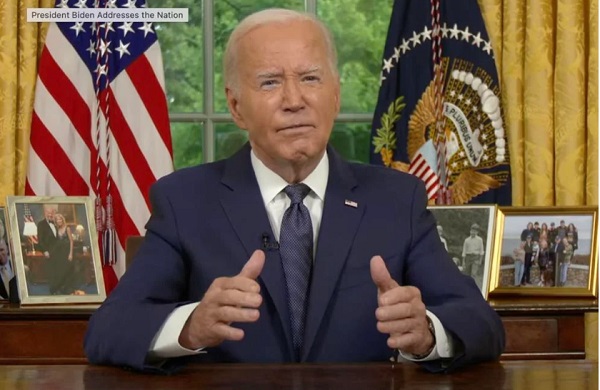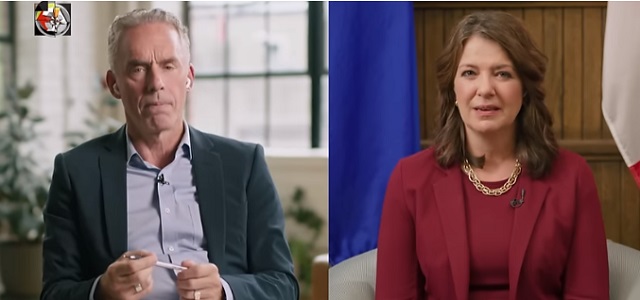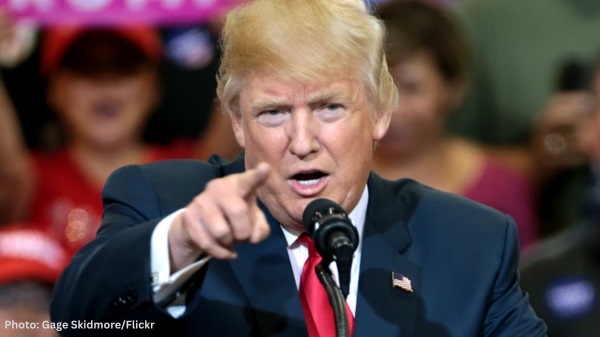Alberta
“All talk, no action”. Alberta government not nearly aggressive enough against Ottawa – Project Confederation
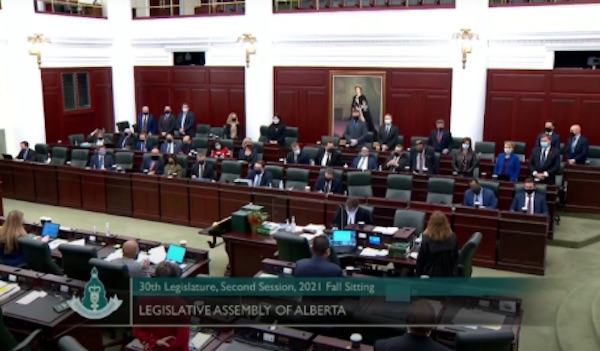
This article is submitted by Josh Andrus, Executive Director of Project Confederation
The Alberta Legislature finished for the year on Tuesday and the theme of the session might as well have been “all talk, no action”.
Despite wave after wave of relentless attacks from a hostile federal government in Ottawa, precious little progress has been made to stand up for Alberta.
Given Prime Minister Justin Trudeau and the Liberal government have their foot on the throat of our energy sector, a strong response from the provincial government should be expected, right?
Well, so far we haven’t seen one.
Maybe Alberta’s response is still being worked on, but why the delay?
It’s not like this was unexpected…
The fall federal election gave us an early taste of what was in store.
All five major parties effectively campaigned to end new energy development in Canada and transition to a net-zero future.
Perhaps the most telling moment was when even the Conservatives refused to show their support for Alberta’s oil and gas industry.
During the English language debate, Bloc Quebecois leader Yves-François Blanchet forced Conservative leader Erin O’Toole to reiterate a promise he’d made at the French debate – that, if elected, the Conservatives would not allow a pipeline to be built through Quebec.
The statement from O’Toole was simple: “We’re not going to let that happen.”
Now re-elected to what barely passes for a mandate – 32.3% of the vote with just a 62.3% turnout – the federal Liberal government is preparing to entirely dismantle Canada’s energy sector.
The Alberta government did finally hold their long-promised referendum on equalization – something that more than two years ago, we suggested should have been held immediately.
Alberta has lost a net $600 billion dollars since 1957, with over $240 billion of that leaving Alberta in just the past 13 years, and 61.7% of voters voted in favour of removing the principle of equalization from the constitution of Canada.
The provincial government then introduced a motion in the Legislature to recognize the result of the referendum, a necessary.
But they seemed to treat it as more of a marketing opportunity than the first step to kick off negotiations with Ottawa, timing the passage of the motion to coincide with Premier Kenney’s speech at the UCP AGM, rather than when it would have made the most waves in the media and in Ottawa.
Trudeau, therefore, was able to easily dismiss the referendum out of hand and his flippant response to Albertans’ clear frustration was just the first slight from Trudeau.
As the Alberta government held a press conference to announce the official referendum results, Trudeau rolled out his cabinet, installing radical environmentalist Steven Guilbeault as the new Minister of Environment and Climate Change.
Let’s be clear, none of this is about reducing emissions or responding to climate change.
This is about power.
This is about wealth and this is about kneecapping a region of the country that refuses to get on board with the Liberal’s radical tax-and-spend agenda.
The Liberals’ contingent at the COP26 Glasgow Climate Change summit made it clear that Western Canada’s energy industry will be maimed – all for the noble cause of “saving the world.”
Trudeau and his team upped the ante by announcing that Canada would cap oil and gas emissions and put Canada on a path to net-zero by 2050.
Former Parti Quebecois leader Jean-François Lisée made this point clear when he decided it was high time to publish an op-ed entitled “What Alberta Owes Us,” wherein he declared that Alberta doesn’t pay Quebec enough!
If Ottawa were honest about their intentions to save the climate, they would also be pointing their guns at Canada’s other heavily emitting industries.
“Ottawa will cap emissions from the oil and gas sector,” said Guilbeault upon his appointment.
“We’re not doing that with any other sectors — not steel, not the auto industry, forestry, cement,” he added.
That’s right, he didn’t just single out oil and gas in the regulations, he also actually bragged about it.
Not concrete. Not the auto industry. Not forestry. Not cement. Just oil and gas.
Premier Kenney had a brief moment where he came to the defence of Alberta, after David Suzuki warned at an Extinction Rebellion rally that “there are going to be pipelines blown up if our leaders don’t pay attention to what’s going on.”
Kenney’s response was well-put, so let’s give credit where credit is due:
“Regrettably, we know that there are people to whom he is speaking who believe that the end of, in their view, saving the planet justifies virtually any means, including violence. We do know. I mean, the term ‘eco terrorism’ is not some kind of a conservative talking point – it’s a reflection of a philosophy and real actions that have really taken lives.”
But again, it’s words, not action.
A couple of strongly-worded statements and/or motions in the Legislature won’t cut it in the face of a series of major political attacks from Ottawa.
When the Legislature returns, we need action.
Action on a provincial police force, action on equalization, action on pensions, action on pipelines.
Albertans want action and Project Confederation is ready to take action.
In the new year, we’ll be returning to organizing in-person meetings and events across the province, to build up teams of activists and volunteers who are ready to push for real action.
If you’re ready to get involved, please click here to sign up to volunteer.
If you can help fund these events, and our ongoing activism work, please click here to make a donation.
Alberta
Alberta awash in corporate welfare
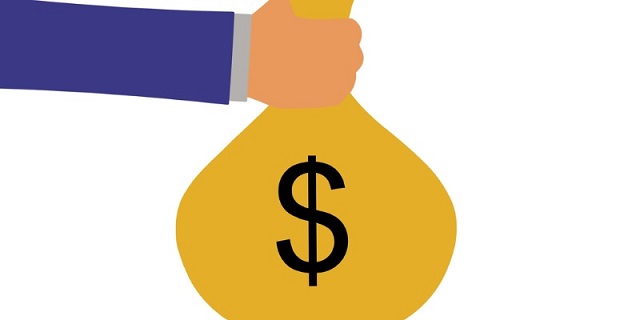
From the Fraser Institute
By Matthew Lau
To understand Ottawa’s negative impact on Alberta’s economy and living standards, juxtapose two recent pieces of data.
First, in July the Trudeau government made three separate “economic development” spending announcements in Alberta, totalling more than $80 million and affecting 37 different projects related to the “green economy,” clean technology and agriculture. And second, as noted in a new essay by Fraser Institute senior fellow Kenneth Green, inflation-adjusted business investment (excluding residential structures) in Canada’s extraction sector (mining, quarrying, oil and gas) fell 51.2 per cent from 2014 to 2022.
The productivity gains that raise living standards and improve economic conditions rely on business investment. But business investment in Canada has declined over the past decade and total economic growth per person (inflation-adjusted) from Q3-2015 through to Q1-2024 has been less than 1 per cent versus robust growth of nearly 16 per cent in the United States over the same period.
For Canada’s extraction sector, as Green documents, federal policies—new fuel regulations, extended review processes on major infrastructure projects, an effective ban on oil shipments on British Columbia’s northern coast, a hard greenhouse gas emissions cap targeting oil and gas, and other regulatory initiatives—are largely to blame for the massive decline in investment.
Meanwhile, as Ottawa impedes private investment, its latest bundle of economic development announcements underscores its strategy to have government take the lead in allocating economic resources, whether for infrastructure and public institutions or for corporate welfare to private companies.
Consider these federally-subsidized projects.
A gas cloud imaging company received $4.1 million from taxpayers to expand marketing, operations and product development. The Battery Metals Association of Canada received $850,000 to “support growth of the battery metals sector in Western Canada by enhancing collaboration and education stakeholders.” A food manufacturer in Lethbridge received $5.2 million to increase production of plant-based protein products. Ermineskin Cree Nation received nearly $400,000 for a feasibility study for a new solar farm. The Town of Coronation received almost $900,000 to renovate and retrofit two buildings into a business incubator. The Petroleum Technology Alliance Canada received $400,000 for marketing and other support to help boost clean technology product exports. And so on.
When the Trudeau government announced all this corporate welfare and spending, it naturally claimed it create economic growth and good jobs. But corporate welfare doesn’t create growth and good jobs, it only directs resources (including labour) to subsidized sectors and businesses and away from sectors and businesses that must be more heavily taxed to support the subsidies. The effect of government initiatives that reduce private investment and replace it with government spending is a net economic loss.
As 20th-century business and economics journalist Henry Hazlitt put it, the case for government directing investment (instead of the private sector) relies on politicians and bureaucrats—who did not earn the money and to whom the money does not belong—investing that money wisely and with almost perfect foresight. Of course, that’s preposterous.
Alas, this replacement of private-sector investment with public spending is happening not only in Alberta but across Canada today due to the Trudeau government’s fiscal policies. Lower productivity and lower living standards, the data show, are the unhappy results.
Author:
Alberta
‘Fireworks’ As Defence Opens Case In Coutts Two Trial
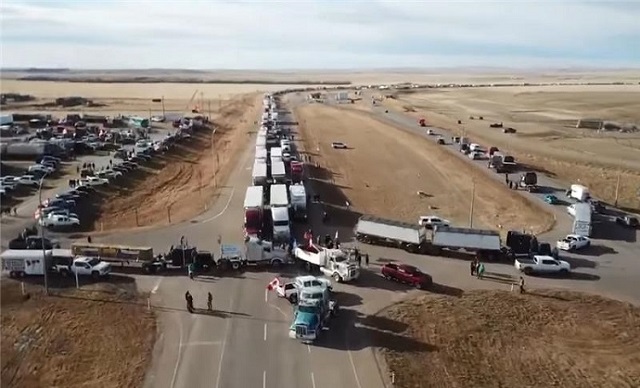
From the Frontier Centre for Public Policy
By Ray McGinnis
Anthony Olienick and Chris Carbert are on trial for conspiracy to commit murder and firearms charges in relation to the Coutts Blockade into mid-February 2022. In opening her case before a Lethbridge, AB, jury on July 11, Olienick’s lawyer, Marilyn Burns stated “This is a political, criminal trial that is un Canadian.” She told the jury, “You will be shocked, and at the very least, disappointed with how Canada’s own RCMP conducted themselves during and after the Coutts protest,” as she summarized officers’ testimony during presentation of the Crown’s case. Burns also contended that “the conduct of Alberta’s provincial government and Canada’s federal government are entwined with the RCMP.” The arrests of the Coutts Four on the night of February 13 and noon hour of February 14, were key events in a decision by the Clerk of the Privy Council, Janice Charette, and the National Security Advisor to the Prime Minister, Jody Thomas, to advise Prime Minister Justin Trudeau to invoke the Emergencies Act. Chief Justice Paul Rouleau, in submitting his Public Order Emergency Commission Report to Parliament on February 17, 2023, also cited events at the Coutts Blockade as key to his conclusion that the government was justified in invoking the Emergencies Act.
Justice David Labrenz cautioned attorney Burns regarding her language, after Crown prosecutor Stephen Johnson objected to some of the language in the opening statement of Olienick’s counsel. Futher discussion about the appropriateness of attorney Burns’ statement to the jury is behind a publication ban, as discussions occurred without the jury present.
Justice Labrenz told the jury on July 12, “I would remind you that the presumption of innocence means that both the accused are cloaked with that presumption, unless the Crown proves beyond a reasonable doubt the essential elements of the charge(s).” He further clarified what should result if the jurors were uncertain about which narrative to believe: the account by the Crown, or the account from the accused lawyers. Labrenz stated that such ambivalence must lead to an acquittal; As such a degree of uncertainty regarding which case to trust in does not meet the “beyond a reasonable doubt” threshold for a conviction.”
On July 15, 2024, a Lethbridge jury heard evidence from a former employer of Olienicks’ named Brian Lambert. He stated that he had tasked Olienick run his sandstone quarry and mining business. He was a business partner with Olienick. In that capacity, Olienick made use of what Lambert referred to as “little firecrackers,” to quarry the sandstone and reduce it in size. Reducing the size of the stone renders it manageable to get refined and repurposed so it could be sold to buyers of stone for other uses (building construction, patio stones, etc.) Lambert explained that the “firecrackers” were “explosive devices” packaged within tubing and pipes that could also be used for plumbing. He detailed how “You make them out of ordinary plumbing pipe and use some kind of propellant like shotgun powder…” Lambert explained that the length of the pipe “…depended on how big a hole or how large a piece of stone you were going to crack. The one I saw was about six inches long … maybe an inch in diameter.”
One of Olienick’s charges is “unlawful possession of an explosive device for a dangerous purpose.” The principal evidence offered up by RCMP to the Crown is what the officers depicted as “pipe bombs” which they obtained at the residence of Anthony Olienick in Claresholm, Alberta, about a two-hour drive from Coutts. Officers entered his home after he was arrested the night of February 13, 2022. Lambert’s testimony offers a plausible common use for the “firecrackers” the RCMP referred to as “pipe bombs.” Lambert added, these “firecrackers” have a firecracker fuse, and in the world of “explosive” they are “no big deal.”
Fellow accused, Chris Carbert, is does not face the additional charge of unlawful possession of explosives for a dangerous purpose. This is the first full week of the case for the defence. The trial began on June 6 when the Crown began presenting its case.
Ray McGinnis is a Senior Fellow with the Frontier Centre for Public Policy who recently attended several days of testimony at the Coutts Two trial.
-

 International19 hours ago
International19 hours agoSecret Service Repeatedly Rejected Offers To Use Drones At Deadly Trump Rally, Whistleblower Says
-

 Business1 day ago
Business1 day agoEstonia’s solution to Canada’s stagnating economic growth
-

 Alberta1 day ago
Alberta1 day ago‘Fireworks’ As Defence Opens Case In Coutts Two Trial
-

 Business1 day ago
Business1 day agoFederal government seems committed to killing investment in Canada
-

 International1 day ago
International1 day agoSwitzerland’s new portable suicide ‘pod’ set to claim its first life ‘soon’
-

 International20 hours ago
International20 hours agoHouse Passes Bipartisan Resolution Establishing Trump Assassination Attempt Task Force
-
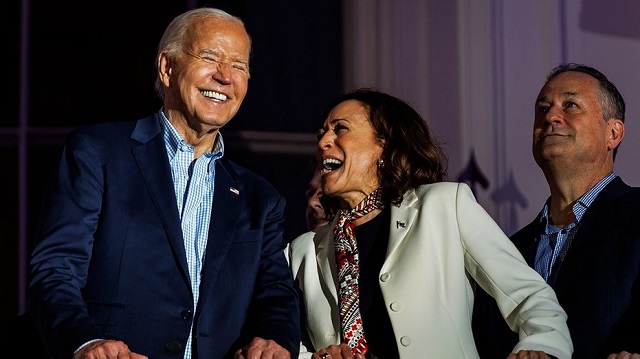
 Bruce Dowbiggin12 hours ago
Bruce Dowbiggin12 hours agoGarbage In, Garbage Out: The Democrats 2024 Election Coup
-
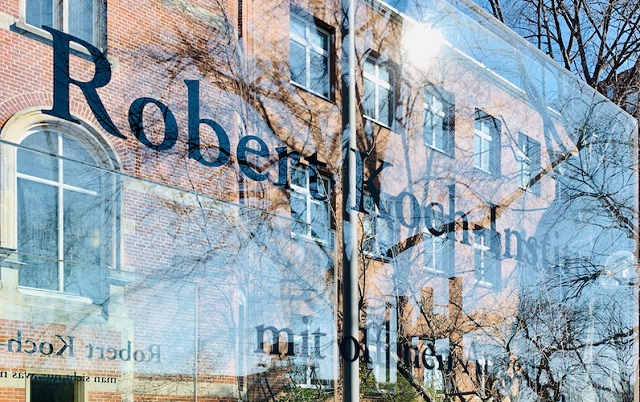
 COVID-191 day ago
COVID-191 day agoLeaked documents: German gov’t lied about shots preventing COVID, knew lockdowns did more harm than good





